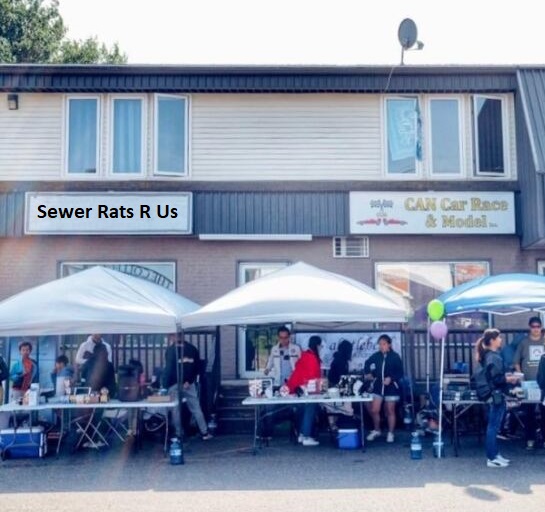In effect, authorities created two rat farms, both unintended: the sewers, and the private-sector rat-farms. The history of Rat Farms offers a valuable lesson in how markets and bureaucracies work. The story of how the colonial authorities in Hanoi came to establish two kinds of rat farms is highly instructive. The first rat farm was unintentional. French colonial authorities decided to modernize the French Quarter of Hanoi (where Westerners lived) by constructing a modern sewer system, the overall goal being to establish “a little Paris in the East.” Their understanding of sewers was limited to the first-order effects: sewers safely collected and disposed of human waste. They did not anticipate the second-order effect: the sewer was Rat Paradise, as “the pipes
Topics:
Charles Hugh Smith considers the following as important: 5) Global Macro, 5.) Charles Hugh Smith, Featured, newsletter
This could be interesting, too:
RIA Team writes The Importance of Emergency Funds in Retirement Planning
Nachrichten Ticker - www.finanzen.ch writes Gesetzesvorschlag in Arizona: Wird Bitcoin bald zur Staatsreserve?
Nachrichten Ticker - www.finanzen.ch writes So bewegen sich Bitcoin & Co. heute
Nachrichten Ticker - www.finanzen.ch writes Aktueller Marktbericht zu Bitcoin & Co.
In effect, authorities created two rat farms, both unintended: the sewers, and the private-sector rat-farms.
The history of Rat Farms offers a valuable lesson in how markets and bureaucracies work.
The story of how the colonial authorities in Hanoi came to establish two kinds of rat farms is highly instructive.
The first rat farm was unintentional. French colonial authorities decided to modernize the French Quarter of Hanoi (where Westerners lived) by constructing a modern sewer system, the overall goal being to establish “a little Paris in the East.”
Their understanding of sewers was limited to the first-order effects: sewers safely collected and disposed of human waste.
They did not anticipate the second-order effect: the sewer was Rat Paradise, as “the pipes offered rats a new ecological niche, free of predators and full of food.”
Second-order effects generate unintended consequences. (First-order effects: actions have consequences. Second-order effects: consequences have their own consequences.)
 Rats proliferated in the sewers and began roaming the streets of Hanoi–not exactly the results intended by the authorities.
Rats proliferated in the sewers and began roaming the streets of Hanoi–not exactly the results intended by the authorities.
Matters became worse when in 1902 a first case of bubonic plague was detected. Modernity had created a potential health crisis.
To combat the exploding rat population, authorities hired crews to enter the sewers and kill the rats– unpleasant and hazardous work.
Despite killing thousands of rats per day, the rats’ tremendous fertility was more than a match for the extermination crews.
In an effort to recruit the local populace as rat-catchers / killers, the authorities offered the public a bounty for every dead rat, and later on for every rat-tail when the pile of rats waiting to be incinerated became too high.
Authorities then noticed tail-less rats around Hanoi: residents caught the rats, cut off their tails, and then freed them to continue breeding to insure a steady supply of profitable rat-tails.
Once again, authorities had failed to consider second-order effects.
The authorities soon discovered the ultimate manifestation of the perverse incentives the bounty had created:rat-farms had been established around Hanoi by private-sector entrepreneurs to maximize the harvesting of profitable rat-tails.
In effect, authorities created two rat farms, both unintended: the sewers, and the private-sector rat-farms.
Perverse incentives and unintended consequences are, like rats, ever-present.
In 1998, the Vietnamese authorities closed restaurants selling cat meat, which was marketed as “little tiger meat”, because they thought that if the cat population decreased, rats would invade the rice fields, showcasing a similar mentality to the French almost a century earlier.
The modern iterations of perverse incentives and unintended consequences generally follow this line of development:
1. Massive new funding is made available to address a pressing problem: higher education, healthcare, homelessness, intelligence-gathering, national defense, etc.
2. This massive influx of new funding creates a new ecological niche free of predators and full of food, enabling the explosive growth of administrators, support staff, consultants and con-artists, all of whom have zero incentive to actually solve the problem and every incentive to expand the problem so their protected Paradise gets more funding.
This is higher education, healthcare, homelessness, intelligence gathering and national defense in a nutshell.
Sources:
Great Hanoi Rat Hunt, The: Empire, Disease, and Modernity in French Colonial Vietnam (book review)
Great Hanoi Rat Massacre (wikipedia)
Tags: Featured,newsletter
